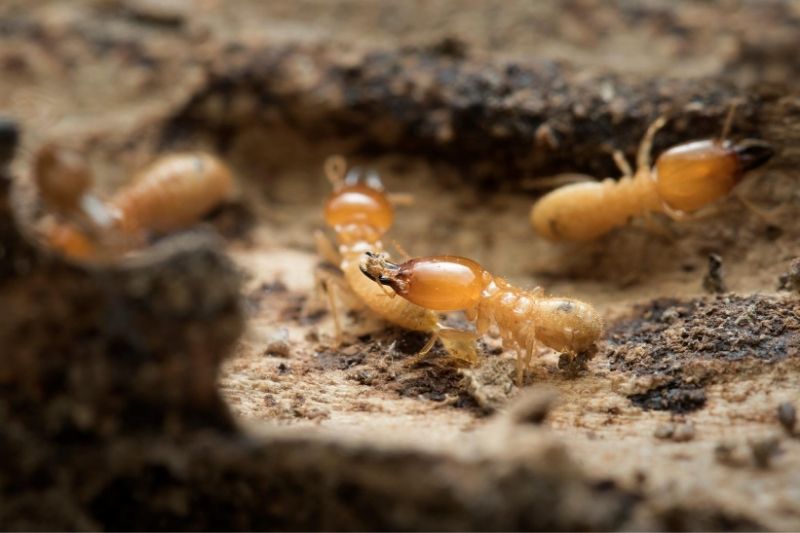Author: Ben, Safeguard Inspections
As a building inspector, we can’t stress enough how important pest control is in both old and new homes, and yet, it’s something that’s often overlooked. Termites (or White Ants) can travel up to 100 metres underground, meaning any tree in your yard or neighbouring yards that harbours termites are a threat to your home. Whilst a professional should carry out yearly chemical termite barrier treatments; you should also have your main line of defence in place – termite mesh.
It’s not unusual to receive questions about termite mesh. Here are the most common questions (and answers!):
How Does Stainless Steel Termite Mesh Work?
This physical termite barrier is a pretty simple concept. Termites can’t penetrate or damage steel because it’s too hard for them to chew. The design of the termite mesh barrier has holes that are too small for a termite to squeeze through. Essentially, the barrier stops termites in their tracks.
The reason why you should still have regular chemical termite barrier treatments carried out is to eradicate any termites, rather than just turning them away to chew through something else.
Why, then, is termite mesh necessary? Because it’s impenetrable whereas chemicals still have a margin of error.
Where Does Termite Mesh Go?
First of all, it’s important to note that the termite mesh is primarily designed for homes on concrete slabs. If your home has suspended flooring (on stilts), there are other options such as ant caps and chemical termite barriers.
Termite mesh is installed with the slab, not only around the perimeter of the slab, but also around other possible entry points such as service pipes.
How Long Does Termite Mesh Last?
A chemical termite barrier can last up to eight years but needs an annual check. Termite mesh, however, lasts ten years and does not require checking. In certain conditions, this physical mesh barrier has the potential to last longer, but this isn’t recommended.
Please remember, whilst the termite mesh doesn’t require annual checks, your property does. Termites don’t only reside in houses.
Where Do I Get Termite Mesh?
Termite mesh can only be installed by a QBCC licensed and accredited stainless steel termite barrier installer. There are a variety of brands available, so you’re best off contacting local pest control businesses about the installation of termite mesh.
Generally, though, if you’re building a new home, your builder will have their preferred supplier and installer that they use, which takes that potentially time-consuming decision out of your hands!
How Do I Know When My Termite Barrier Needs Replacing?
Honestly, it’s best to keep track of these things simply. If it’s been ten years since you moved into your new home or had it installed, then it’s time for more. Otherwise, the only other true way to tell is when termites get into your home!
Probably best to track and avoid that altogether.
Can You Use Drainage Mesh To Stop Termites?
No, please don’t do that!
Drainage mesh is, more often than not, made of plastic. That stuff is soft enough for termites to chew! Even if the termites didn’t have the stomach for plastic, the holes in the mesh are far too big. If you decide to use drainage mesh as a physical termite barrier, expect termites.
Worried That Termites Have Made It Into Your Home?
Ben Patterson is the Director at Safeguard inspections, a licensed and experienced building and pest inspection service in Brisbane’s Manly West. Checks can be made for all types of pests as well as general checks as to what visible termite protection there might be on your property.




